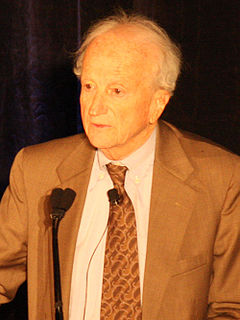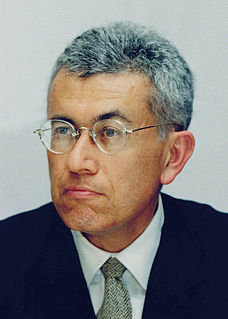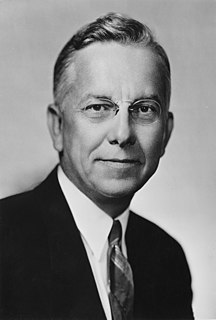A Quote by John Maynard Keynes
I expect to see the State, which is in a position to calculate the marginal efficiency of capital-goods on long views and on the basis of the general social advantage, taking an ever greater responsibility for directly organizing investments.
Related Quotes
The capabilities (intellectual and material) of contemporary society are immeasurably greater than ever before - which means that the scope of society's domination over the individual is immeasurably greater than ever before. Our society distinguishes itself by conquering the centrifugal social forces with Technology rather than Terror, on the dual basis of an overwhelming efficiency and an increasing standard of living.
Family is a difficult matter. I must admit I do not know that the state can intervene successfully in a family. It's a fact that everything is connected with the individualist temperament, the kind of economic environment which stresses the individual, but this is not directly the result of a state policy, nor do I see any good way by which the state could intervene except in some marginal ways.
Biology occupies a position among the sciences at once marginal and central. Marginal because-the living world constituting but a tiny and very "special" part of the universe-it does not seem likely that the study of living beings will ever uncover general laws applicable outside the biosphere. But if the ultimate aim of the whole of science is indeed, as I believe, to clarify man's relationship to the universe, then biology must be accorded a central position . . .
Collective insurance policies and social protections have given way to the forces of economic deregulation, the transformation of the welfare state into punitive workfare programs, the privatization of public goods and an appeal to individual accountability as a substitute for social responsibility.
Social solidarity must rest instead on the sole secure basis it can have: direct responsibility of people for one another. Such responsibility can be realized through the principle that every able-bodied adult holds a position within the caring economy - the part of the economy in which people care for one another - as well as within the production system.
I think the other side of this is in this balance between the social state and the punishing state, remember, the social state has been decimated. And the question becomes, how is finance capital, how does the 1 percent now resort to governing? And they govern basically through a form of lawlessness and what I call the punishing state, in which we've had a punishment creep, and now it moves from the prison to almost every institution in society, from airports to schools to social services.
Give the money directly to people who work hard. Instead of taking the money from the business and then filtering it through the horror of government programs, which is essentially giving it to social workers who live in Bethesda so they can drive their minivans and vote Democratic. Give them the money, so that they go and talk to the worker who is washing dishes, and they say, "Well, we want to help you, you see." And it would be better to help them by taking the money from that minivan-driving social worker and giving it directly to the guy who is really working hard by washing dishes.
How glorious, then, is the prospect, the reverse of all the past, which is now opening upon us, and upon the world. Government, we may now expect to see, not only in theory and in books but in actual practice, calculated for the general good, and taking no more upon it than the general good requires, leaving all men the enjoyment of as many of their natural rights as possible, and no more interfering with matters of religion, with men's notions concerning God, and a future state, than with philosophy, or medicine.
The responsibility which rests upon man is proportional to the ability which he possesses and the opportunity which he faces. Perhaps that responsibility is no greater for him than was that of Notharctus or Eohippus or a trilobite, each in his own day, but because of man's unique abilities it is the greatest responsibility that has ever rested upon any of the earth's offspring.


































